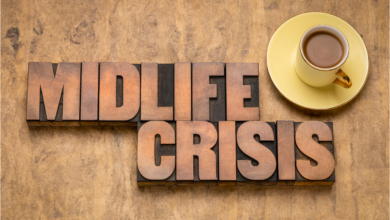
Although the overall stigma of mental health is being successfully challenged, it still remains strong for men and boys. Gender stereotypes and cultural expectations still prevent many men from expressing their emotions, processing their grief, and finding treatment for their mental health conditions.
This has devastating consequences for men and boys. Many men spend their entire lives living with painful mental health conditions, and numerous men die young because of this. This article aims to address the stigma around the mental health of men and boys and discuss the consequences of this stigma.
What is The Stigma?
Societal norms and expectations of masculinity prevent men from caring for their mental health. This is primarily due to the fact that emotions are often seen as feminine. Many cultural norms do not allow people to express their masculine and feminine traits equally. Instead, women are pressured to express only feminine traits, and men are encouraged to focus solely on masculinity.
The problem is that this means the entire subject of mental health is seen as feminine and therefore taboo to men. This discourages men from discussing their mental health conditions and seeking treatment or help. Instead, they bottle up their emotions or turn to unhealthy and harmful behaviors as a way of coping with their pain.
According to the stigma, asking for help or discussing feelings is considered weak. Those who don’t need these things are considered strong and “macho,” implying that any man who needs help is inferior. This, unfortunately, encourages a culture of men to avoid their mental and emotional care and turn to harmful and deadly behaviors instead.
How Does This Stigma Affect The Mental Health Of Men And Boys?
As you can imagine, this stigma manifests in a myriad of unhealthy ways. In fact, the discouragement of emotional expression and care of mental health is killing thousands of men each year. Read on to gain an understanding of how devastating this stigma is to the lives of men and boys.
Discouragement To Seek Treatment
Since any expression or discussion of emotions or mental health is perceived as unmanly, men are less likely to seek a therapist or other form of treatment for their mental health conditions. Unfortunately, this means that many men live with conditions such as depression, anxiety, phobias, and personality disorders without seeking any help. As you can guess, this makes their lives fairly miserable as they have no outlet or help for these painful conditions.
Men become stuck living with the pain and consequences of a mental illness. Not only do they live with an enormous amount of emotional pain, but bottling those emotions up can result in physical health conditions as well. Furthermore, mental illness does not leave any aspect of life untouched, meaning that men live with numerous issues in their work lives and relationships that could easily be resolved by seeking counseling or other treatments.
Worsening of Symptoms and Conditions
Not only are men less likely to seek treatment to improve their symptoms, but their symptoms may actually worsen. The stigma encourages men to bury their emotions, which only heightens them and worsens their conditions. Without seeking treatment or discussing their conditions, they may never find coping mechanisms and live with a worsening condition.
Substance Use
Men who cannot express their emotions or find healthy ways to handle and process them turn to substances for comfort. Unfortunately, this often leads to substance use which has devastating consequences for men. About 62,000 men die from alcohol use each year, which is more than double the rate of women who die from substance use (26,000). Furthermore, men are twice as likely as women to use drugs to cope with their emotions.
Without a healthy outlet, many men feel that substances are their only source of comfort. However, as you can see, simply avoiding talking about emotions can have some deadly consequences.
Depression and Suicide
Another deadly consequence of this stigma is the heightened risk of depression and suicide in men. In fact, both depression and suicide are the leading causes of death in men each year. Millions of men live with depression, and more men die of suicide than women, making up about 79% of suicide cases each year. The stigma against men is so strong that it forces them to end their life instead of asking for help.
If you or a loved one are experiencing suicidal thoughts, reach out for help immediately. The National Suicide Prevention Lifeline can be reached at 1-800-273-8255, and is available 24/7.
What Can Be Done To Change This?
Education and conversation are key to challenging this stigma. Though there has already been some progress in recent years, more needs to be done to help our men and boys.
First, make sure you educate yourself on the mental health needs of men and boys. To start, you can find more information about this topic here. Next, find ways to spread awareness and information about this important topic, such as through social media.
But some of the greatest impacts come from having these discussions with the men and boys in your life. If you have young sons, nephews, or grandchildren, have open and vulnerable conversations with them from an early age. Assure them that it is safe for them to express their emotions in a healthy way and show them how to do that.
Also, show patience, warmth, and understanding for the grown men in your life. Give them the space to healthily express their emotions but also have patience with them if they struggle with this. Even if they are open to seeking mental health treatment or having more discussions, it may still be hard for them. It takes time to let go of cultural expectations, so be patient with them during this process.
Marie Miguel Biography
Marie Miguel has been a writing and research expert for nearly a decade, covering a variety of health-related topics. Currently, she is contributing to the expansion and growth of a free online mental health resource with BetterHelp.com. With an interest and dedication to addressing stigmas associated with mental health, she continues to specifically target subjects related to anxiety and depression.








